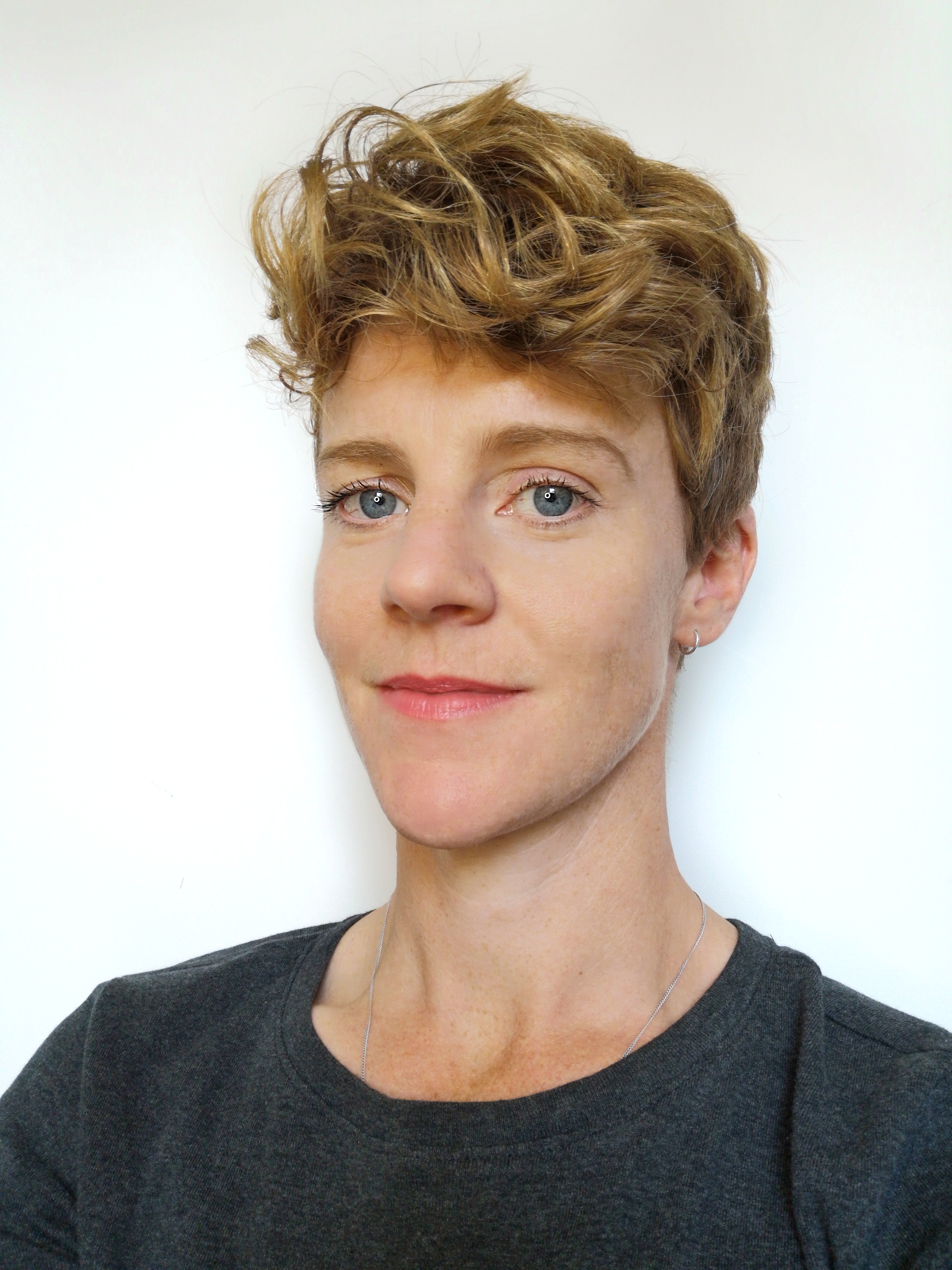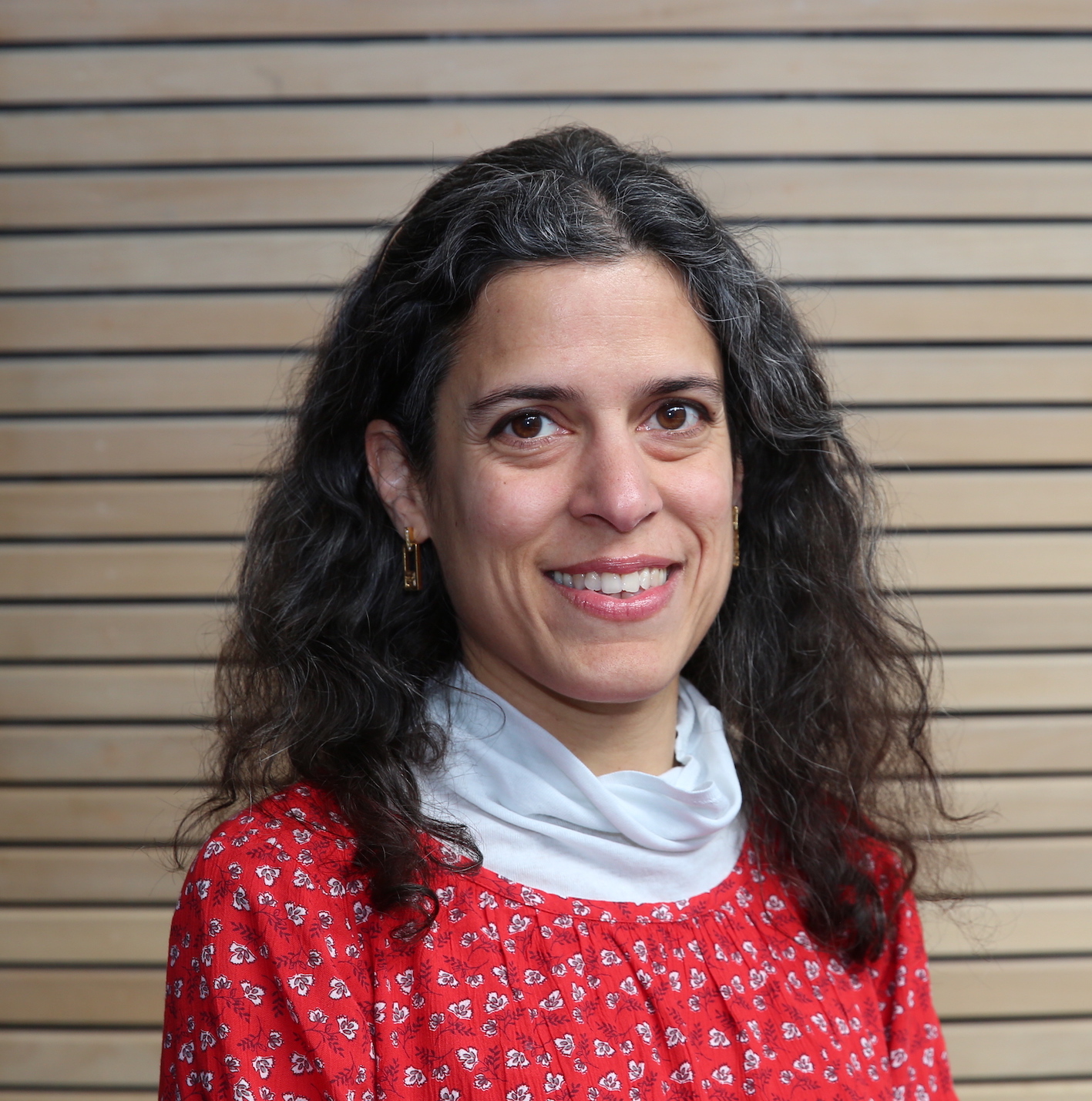Study options
- Starting in
- September 2025
- Location
- Mile End
- Fees
- Home: £12,250
Overseas: £25,500
EU/EEA/Swiss students
What you'll study
Depending on your background and research aims, you can choose from one of four pathways:
- The Conversion pathway is designed to offer postgraduate level training in the core subject areas of linguistics, at a pace that is tailored to students who have little or no prior background in this field
- The General pathway is designed to offer students postgraduate level training across the areas of Formal and Sociolinguistics, and to explore the exciting interactions between the two
- The Specialisation in Formal Linguistics is designed to offer students postgraduate level training in the area of Formal Linguistics
- The Specialisation in Sociolinguistics is designed to offer students postgraduate level training in the area of Sociolinguistics
You’ll gain practical experience in conducting linguistics research. In addition to your dissertation, you can work as a research assistant on one of our research projects.
Along with the wide range of elective modules offered on each pathway, you can choose up to two undergraduate linguistics modules. You can take any combination of options if you can make a convincing academic case for your choices.
Additional costs
You might incur travel costs for the Research Practicum module as it may involve visits to other institutions.
Structure
Compulsory Modules:
Formal Pathway
LIN7027 Trends in Linguistic Research (15 credits)
LIN7209: Syntax (15 credits)
LIN7005: Dissertation Proseminar (15 credit)
LIN7007: From Morpheme to Meaning (15 credits)
LIN7016 Understudied Languages and Linguistic Theory (15 credits)
Conversion Pathway
LIN7027 Trends in Linguistic Research (15 credits)
LIN7205 Introduction to Phonetics (15 credits)
LIN7213 Introduction to Sociolinguistics (15 credits)
LIN7005: Dissertation Proseminar (15 credit)
LIN7053: Applying Linguistics in the Real World (15 credits)
LIN7207: Introduction to Syntax (15 credits)
General Pathway
LIN7027 Trends in Linguistic Research (15 credits)
LIN7209: Syntax (15 credits)
LIN7002 Sociolinguistic Theory (15 credits)
LIN7005: Dissertation Proseminar (15 credit)
Sociolinguistics Pathway
LIN7027 Trends in Linguistic Research (15 credits)
LIN7002 Sociolinguistic Theory (15 credits)
LIN7005: Dissertation Proseminar (15 credit)
LIN7023 Research Methods in Sociolinguistics (15 credits)
All pathways include a 60 credit dissertation in semester 3.
Electives:
F = Formal, C = Conversion, G = General, S = Sociolinguistic
LIN7209: Syntax (15 credits) C, S
LIN7002 Sociolinguistic Theory (15 credits) F, C
LIN7077 Programming for the Humanities (15 credits) F, G, S
LIN7078 Analysing Language Datasets (15 credits) F, G, S
LIN7205 Introduction to Phonetics (15 credits) F, G, S
LIN7213 Introduction to Sociolinguistics (15 credits) F
LIN6060 Language and Health Communication (15 credits)* F, C, G, S
LIN6213 Neurodiversity in Language Development and Cognition (15 credits)* F, C, G, S
LIN6020 Ethnography of Communication - Foundations and Fieldwork (15 credits)* F, C, G, S
LIN7007: From Morpheme to Meaning (15 credits) C, G, S
LIN7016 Understudied Languages and Linguistic Theory (15 credits) C, G, S
EAL7202 Second Language Acquisition (30 credits)** F, C, G, S
LIN7010 Sociophonetics (15 credits) F, C, G, S
LIN7014 Research Practicum (15 credits) F, C, G, S
LIN7023 Research Methods in Sociolinguistics (15 credits) F, C, G
LIN7053: Applying Linguistics in the Real World (15 credits) F, C, G
LIN7075 Language and AI: Advanced Programming (15 credits) F, G, S
LIN7207: Introduction to Syntax (15 credits) F, C, S
LIN7214 Multimodality, media and language (15 credits) F,C, G
LIN6019 Sex, Gender, Language (15 credits)* C,G,S
* maximum 30 credits can be taken from these modules
** not available for part time students
Compulsory/Core modules
During this module, students (in coordination with a supervisor) will select a topic for advanced study; collect and analyze data to adequately address the chosen topic; and write a 15,000 word dissertation. Through the dissertation, students will synthesize various aspects of the knowledge they will have obtained through the degree and demonstrate their ability to conduct and present high quality original research.
Compulsory/Core Elective modules
The field of sociolinguistics has seen the parallel development of a number of theories of how language relates to, and is embedded in, society. Some of these developments have been mutually reinforcing or complementary, while others have raised questions and debates over the nature of social variation in language. This course reviews the major 'lineages' of thinking in sociolinguistics, covering theories that have formed the foundation of both quantitative and qualitative approaches sociolinguistics. With a focus on the former, the course will require students to read classic texts from early sociolinguistic theory (developed in William Labov's early work and parallel strands of thought from the same period) and then trace the development of distinct 'waves' of thinking and analysis in subsequent decades. On the qualitative side, the course will cover selected classic works from social theory, and literary and cultural theory that have been influential in sociolinguists' thinking about social structure and variation (e.g. Bourdieu, Bakhtin). Overall, the course will provide students with an advanced foundational knowledge of major developments in sociolinguistic thought over the past half century.
Research at postgraduate level places special demands on the developing researcher, for which appropriate training is needed. The two primary goals of this module are to prepare students for the practical challenges of postgraduate research (including the development of a research question/agenda, advanced library research, ethics and practical dimensions of research collection, outlining and writing a dissertation, abstract-writing, oral presentation, and other related skills) and to initiate students into specialised research in their chosen dissertation area. The first part of the module (before reading week) will cover core, generic postgraduate training for all students on the MA, taught through group sessions. The second part of the module (after reading week) will require students to apply this knowledge (as well as knowledge from core modules in Semester 1) to their chosen area of research by pursuing independent reading and research towards their potential dissertation topics (to be completed during the summer term), taught through individual meetings with supervisors.
Current generative theory has developed a model of the interaction between structure, morphological form, and meaning which takes the syntax to provide the central system with which morphophonology and semantics interface. This idea has been mainly developed in primary technical literature by Chomsky, Marantz, Borer, Kayne, Cinque, Ramchand, Adger and others. The module systematically develops an understanding of what this architecture for language implies for analyses of crucial phenomena: clause and nominal structure, predication, syntactic dependencies, language variation, through a critical exploration of the relevant literature. It also develops students' skills of syntactic argumentation, and the presentation of these arguments to professional audiences.
This module provides students with an advanced overview of both qualitative and quantitative research methods in sociolinguistics. Covering all aspects of data collection and analysis, students will learn how to devise appropriate research hypotheses; collect data for subsequent quantitative and qualitative scrutiny; and perform a variety of analytical techniques most commonly used in the humanities and social sciences (including narrative analysis, discourse analysis, conversation analysis, analyses of variance, multiple regression and various non-parametric tests). Methods covered include observation, interview, surveys, questionnaires and corpus-based techniques. Students will also learn how to effectively summarize and present findings to both specialist and non-specialist audiences.
Each week, students in this module will read one paper by a member of staff (along with, optionally, a related text in that subfield) and prepare questions about the research described in those papers. The member of staff will attend that week's class meeting, and engage in discussion of their research goals, results and methods with students. Students will be expected to participate in developing further research questions and novel methodological solutions pertinent to the sub-discipline being focused on in a given week. Students will gain an appreciation for the full range of research topics and methods that staff are expert in, and have a unique opportunity to engage in high level, in-depth discussions of world renowned, cutting edge research with the researchers who have done this research. Students will write several short 500 word response papers and will develop one of these into a longer piece of work.
This module provides an introduction to one of the core sub-fields of linguistics. A central part of speakers' knowledge about the language that they speak is that words are not always pronounced in the same way. The variation that we observe is systematic. Phonology is concerned with describing the system that underlies our knowledge of the sound patterns, i.e. the ways in which words are pronounced differently across contexts. You will be introduced step-by-step to the tools of phonological analysis, and will learn to apply that knowledge through problem solving exercises. The module is suitable for MA students without substantial prior background in Linguistics, or for those who want to branch out into a new sub-field.
This module will provide a introduction to phonetics, one of the core sub-fields of Linguistics. This is the study of how speech sounds are produced and perceived, as well as what the acoustic properties of these sounds are. This module will focus on the main processes of phonetic articulation, practice with transcription using the International Phonetic Alphabet as well as on the acoustic analysis of speech. The module is suitable for MA students without substantial prior background in Linguistics, or for those who want to branch out into a new sub-field.
This module provides an introduction to one of the core sub-fields of linguistics. How is it that the grammar of any given language can produce an infinite array of sentences? Syntax is concerned with describing the system that underlies our knowledge of grammatical structure. You will be introduced step-by-step to the tools of syntactic analysis, and will learn to apply that knowledge through problem solving exercises, working with data from a variety of well-known and unfamiliar languages The module is suitable for MA students without substantial prior background in Linguistics, or for those who want to branch out into a new sub-field.
Empirical results in a broad range of languages have now made the understanding of the basic building blocks of syntactic theory fundamental to any advanced work in linguistics, not only in syntax and semantics, but within any area of linguistics. This module will familiarize students with the basic elements of syntactic construction, serving at the same time as an introduction for students with less background, and as a critical overview, for those more advanced. Emphasis will be put on the development of argumentation skills and the ability to undertake independent analysis of linguistic data, as well as on the development of critical thinking in evaluating competing approaches to the same paradigms.
This module trains students in the craft of doing formal semantics. It introduces Frege's hypothesis that functional application is the mechanism by which the meaning of a complex phrase is composed from the meanings of its constituent parts. It applies this method to the analysis of a variety of core semantic phenomena, including argument structure, adjectival modification, definite descriptions, relative clauses, binding and quantification. These phenomena are all extensional, meaning that insightful analyses of them can be developed without recourse to theories of possible worlds, situations, or temporal intervals. Emphasis throughout is on training students to be able to produce explicit detailed analyses of novel data.
This module provide an introduction to sociolinguistics - a major sub-field of Linguistics that examines language in its social context. The module introduces students to how the patterns of everyday language use around us, ones that we usually take for granted, tell us a lot about social structure, interpersonal dynamics, identity and social meaning. The aim is to demonstrate how language-in-use can be studied systematically, and to show how the use of English and other languages in particular speech situations, activities, and public discourse, enrich our understanding both of human language and human social behaviour.
Elective modules
Assessment
- 67% Modules
- 33% Dissertation
You will be assessed by a wide variety of methods, including poster presentations, technical exercises, critiques of theoretical and methodological proposals in the literature, research and lab reports, essays and extended written analyses.
Dissertation
You will also be assessed on a supervised 10,000-word dissertation. Recent dissertation subjects include:
- (Ethno)metapragmatic stereotypes in swearing
- Language variation and change in Gibraltar: an intergenerational study
- Linguistic Variation in the American Legal Process: A Pilot Study on Implicit Linguistic Bias
- Fijian possession
Teaching
You will be taught in lectures and small group seminars. The seminars are designed to generate discussion and may involve presentations, group exercises, fieldwork, data analysis and lab work.
You'll also need to spend a significant amount of time in independent learning and research, especially as coursework deadlines approach.
We want you to get the best from your studies, so you'll be paired with your own Academic Adviser, who'll support you academically and pastorally.
We have a range of academic expertise in the Department, and you teaching staff may vary.
If you have any queries about our MA in Linguistics, please contact Prof. Linnaea Stockall, MA Porgramme Convenor l.stockall@qmul.ac.uk
Where you'll learn
Facilities
- Our new Graduate Centre: purpose-built study spaces and a roof-top common room with a terrace
- We have recently opened up world-class facilities in the Phonetics Lab, Acquisition Lab and The Morphemes and Meaning Lab – these facilities are available for your research
- Access to Queen Mary's comprehensive libraries, including the Postgraduate Reading Room
- Access to the superb collections at Senate House Library, University of London
Campus
Our location in the heart of London’s East End offers an exciting, incredibly rich and diverse cultural environment for linguistics research – more than 110 languages are spoken in our local borough.
As Queen Mary is on the Central Line, you are also only minutes away from many of the University of London’s other libraries, such as those of the British Film Institute, the Warburg and Courtauld Institutes or the social sciences library at the LSE, which will provide additional breadth to your studies. The incomparable resources of the British Library are close at hand, while London's cultural resources add richness to research in our specialist fields.
About the School
School of the Arts
The School of the Arts combines innovation, discovery and excellence in education and research in Drama, Film, Modern Languages, English & Comparative Literature, Creative Writing, Linguistics and Liberal Arts. We rank in the top 100 worldwide for Arts and Humanities (QS World University Rankings by Subject 2024)
With our commitment to social justice, inclusivity and social mobility, our collaborations with external organisations, prominent writers and performers, and our facilities that support both academic and practice-based learning, an education in the School of the Arts equips our students with critical thinking and practical skills, unleashes their imagination and enables them to reach the levels of excellence needed in today’s industries.
We regularly host prominent writers and performers and collaborate with leading organisations such as the V&A, the Barbican, the Live Art Development Agency and Shakespeare’s Globe.
We are renowned for the depth and impact of research - which leads our teaching. We rank 1st for drama and in the top 10 for film in the UK for the quality of our research (REF2021). Our multilingual community brings together brilliant minds from across the world to share a wealth of expertise combining research excellence with an unrivalled commitment to social justice and social mobility.
Career paths
You'll be able to attend our training workshops throughout the year, which will provide specialist linguistics training, as well as guidance on how to write journal articles, research ethics and knowledge transfer in general.
We also offer advising on funding and applications for MA students considering pursuing a PhD in Linguistics.
We also provide you with a superb professional network: our MA cohort form close links during and after their degree – and even after graduation, you'll still be invited to our events and networking opportunities.
Students have gone on to careers in areas such as marketing and PR in organisations such as:
- the BBC
- the British Council
- the Cabinet Office
- the Guardian.
Fees and funding
Full-time study
September 2025 | 1 year
- Home: £12,250
- Overseas: £25,500
EU/EEA/Swiss students
Unconditional deposit
Home: Not applicable
Overseas: £2000
Information about deposits
Part-time study
September 2025 | 2 years
- Home: £6,150
- Overseas: £12,750
EU/EEA/Swiss students
Unconditional deposit
Home: Not applicable
Overseas: £2000
Information about deposits
Queen Mary alumni can get a £1000, 10% or 20% discount on their fees depending on the programme of study. Find out more about the Alumni Loyalty Award
Funding
There are a number of ways you can fund your postgraduate degree.
- Scholarships and bursaries
- Postgraduate loans (UK students)
- Country-specific scholarships for international students
Our Advice and Counselling service offers specialist support on financial issues, which you can access as soon as you apply for a place at Queen Mary. Before you apply, you can access our funding guides and advice on managing your money:
Entry requirements
UK
Degree requirements
A 2:1 or above at undergraduate level in any subject.
Other routes
Candidates that do not currently meet the set entry requirements may also have the option to study the Graduate Diploma in Humanities and Social Sciences. Meeting the required grades on completion of this programme will provide a pathway to study MA Linguistics.
Find out more about how to apply for our postgraduate taught courses.
International
English language requirements
The English language requirements for our programmes are indicated by English bands, and therefore the specific test and score acceptable is based on the band assigned to the academic department within which your chosen course of study is administered. Note that for some academic departments there are programmes with non-standard English language requirements.
The English Language requirements for entry to postgraduate taught and research programmes in the School of the Arts fall within the following English band:
Band 5: IELTS (Academic) minimum score 7.0 overall with 6.0 in each of Writing, Listening, Reading and Speaking
We accept a range of English tests and qualifications categorised in our English bands for you to demonstrate your level of English Language proficiency. See all accepted English tests that we deem equivalent to these IELTS scores.
Visas and immigration
Find out how to apply for a student visa.








